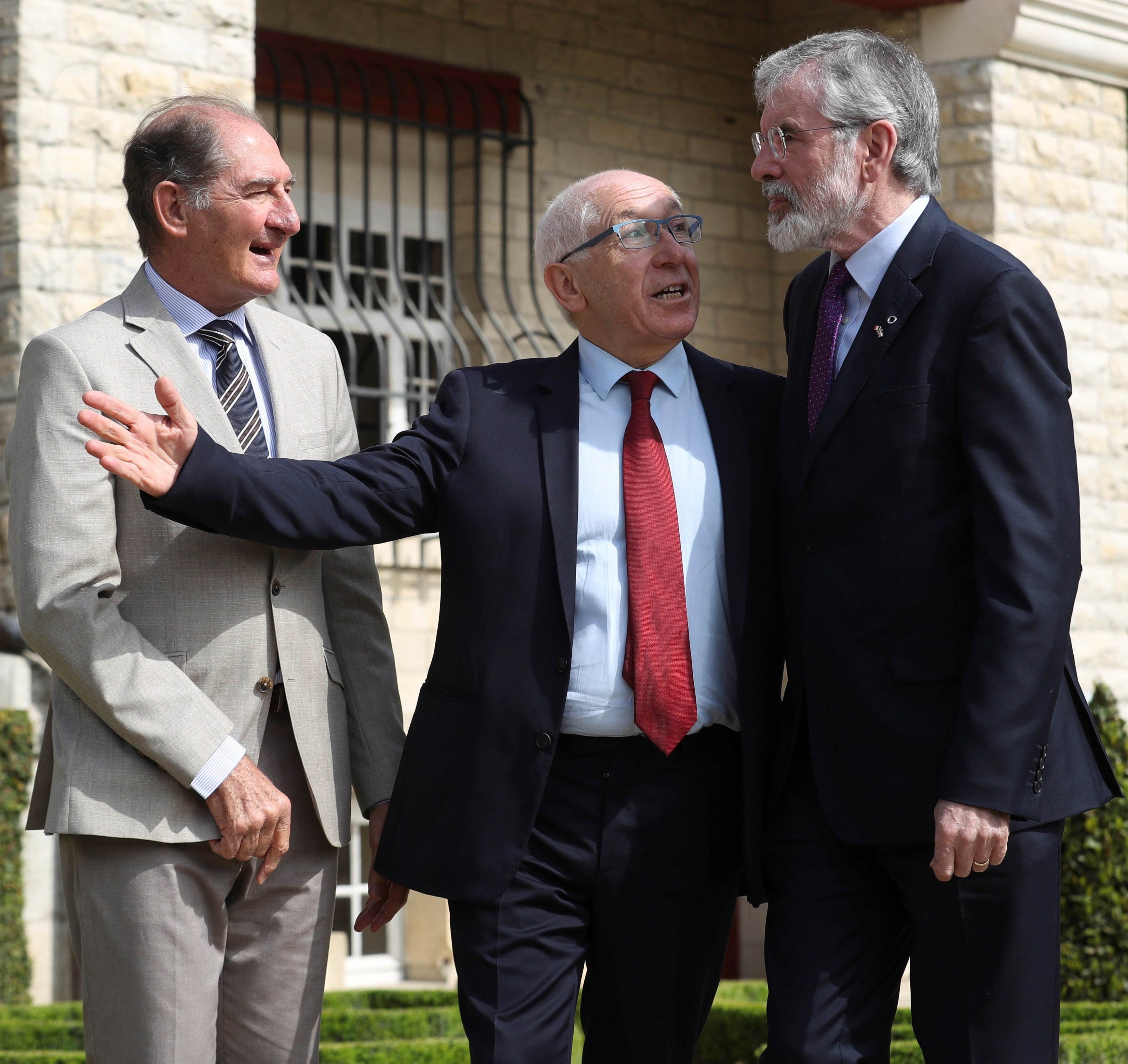Today's event to formalise the dissolution of the terrorist group ETA started with a minute's silence in memory of the "victims of the conflict". South African lawyer Brian Currin described it as a "day to celebrate", although "the peace process isn't over".
Currin was the first to speak of the international panel in the Arnaga Villa in Kanbo-Les Bains in the French Basque Country. The so-called "International event to advance in the resolution of the conflict in the Basque Country" was organised by the International Contact Group for the Basque Country, promoted by Currin, the Permanent Social Forum and French Basque association Bake Bidea.
Currin was followed by, among others, Jonathan Powell, Tony Blair's chief of staff, and Gerry Adams, former leader of Sinn Féin, who called for the victims to be listened to and for the remaining ETA prisoners to be moved to jails closer to the Basque Country.
A letter was read from former UN secretary general Kofi Annan, who took part in the 2011 Aiete Conference which ended in ETA pledging to end its armed struggle. In the letter, Annan said today "marks the end of the last armed conflict in Europe and should be celebrated across the continent".
The South African lawyer discussed the role of the contact group as mediator after the failure of contacts between the Spanish government and ETA, highlighted the important role he believes Basque society has had in reaching this point. "I don't know any other peace process which has come from the ground up", said Currin, after claiming that, after the Spanish government declined to participate, it was civil society that wanted peace to come and so intervened.
He expressed sadness that neither the Spanish, French, nor Basque governments were represented at the meetings. "It's sad because what we really need is integration between the different groups so that this celebration could have been an inclusive one. It is sad also that they were not in Geneva yesterday."
Currin emphasised that the peace process is not yet over, given that people are still living with the consequences of the violence and that there are still "issues" for victims and as regards reconciliation. "And, once again, civil society has to take part, and the institutions too. It's necessary to continue working to forge links, to build bridges and build peace from the ground up,1" he said.
For Currin, "the people have to take part in the democratic process in the Basque Country" which, in his opinion, requires reconciliation "at different levels and between different structures".
"Actions in favour of the independence of the Basque Country are going to continue, democratically. Reconciliation is unavoidable. In first place, there is the problem of the prisoners, there are many prisoners".
He said that the end of ETA "opens a opportunity for the states, politicians and the Basque government too... to work together and look for solutions and to be able to resolve the consequences of the violence". "You cannot undertake the peace process without resolving these questions, and a corollary is that it's necessary to help the victims, of course. It will have to be seen what role the victims have in the peace process," he said.
Cuauhtémoc Cárdenas, from Mexico, founder of the Democratic Revolution Party, celebrated the end of "this period of armed conflict" and the start of a period of "constructive peace" in a short speech.
Former Taoiseach (prime minister of Ireland), Bertie Ahern, highlighted the "spectacular" developments towards peace in the Basque Country and admitted that he was criticised himself for deciding to move towards "reconciliation in favour of the prisoners, but such decisions are positive".
Translator's note: 1. Many of the quotes in this report unfortunately had to be back-translated from Catalan, so might not match the original remarks word-for-word when those were made in English.

